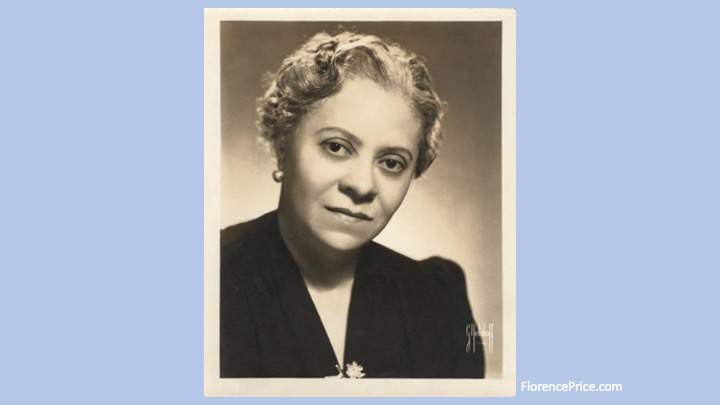Quick! name a major American composer. Maybe Aaron Copeland, Duke Ellington, Samuel Barber, Charles Ives or John Williams come to mind. But Florence Price? Unlikely. Until recent years, her compositions were forgotten for decades and even thought to be lost until a trove of her large body of work was discovered in what had been Price’s summer house in 2009.
This weekend, Symphony San José is presenting Price’s Symphony No. 1 in E minor in a program that includes pianist and Bay Area native Jon Nakamatsu performing Edvard Greig’s piano concerto.
“Symphony San Jose is committed to featuring the masterworks of the symphonic canon alongside new discoveries,” said Symphony San Jose General Director Robert Massey. “Florence Price’s works are seeing a well-deserved renaissance and we’re thrilled to bring Symphony No. 1 to South Bay audiences.”
Florence Price (1887 – 1953) was an important figure in American music and her work is worthy of a place in the canon of Western music.
But it hasn’t had that place until now for two simple reasons, as she wrote to the famous conductor Serge Koussevitzky: “I have two handicaps…I am a woman and I have some Negro blood in my veins.” But Price didn’t want “any concession on that score.” She wanted “to be judged on merit alone.”
She became the first African American female composer to have a symphony performed by a major American orchestra. The Chicago Symphony Orchestra premiered her Symphony No. 1 on June 15, 1933 during Chicago’s Century of Progress Exposition. Price’s symphony also won first prize in the prestigious Wanamaker music competition in 1932.
Born in Little Rock, Arkansas, Price was a prodigy. She played her first piano recital at the age of four and published her first composition when she was 11. She left Arkansas, after graduating from high school at 14, and attended New England Conservatory of Music.
After graduation, Price became composer, artist-in-residence and music teacher at Clark University in Atlanta, the first university to offer advanced degrees to African Americans. After marrying, she moved back to Arkansas and taught music privately, composing her own piano studies.
Following an outbreak of racial violence in Arkansas, the Price family fled north to Chicago when vigilantes threatened to kill their daughter. They settled in Chicago’s South Side and Price began to concentrate on composition. At times, she worked as an organist in movie theaters and wrote advertising jingles.
Price’s music marries the dramatic European Romantic style with African American melodies and rhythms in a synthesis that is unmistakably American.
“Florence Price’s Symphony No. 1 is parade of gorgeous instrumental timbres,” said Massey. “It’s reminiscent of the music of Dvořák, Copland and Debussy, and includes Price’s trademark ‘juba’ or ‘stomping dance’ filled with catchy melodies.”
You can hear Florence Price’s music Saturday, March 18, 2023 at 8 p.m. and Sunday, March 19, 2023 at 2:30 p.m. at The California Theatre, 345 South First Street, San José. For more information, visit www.symphonysanjose.org.
On March 25 at 7 p.m., Symphony San José & Symphony San Jose Chorale present “Serenade to Music” in the Santa Clara Mission, on the Santa Clara University Campus, 500 El Camino Real, Santa Clara.
